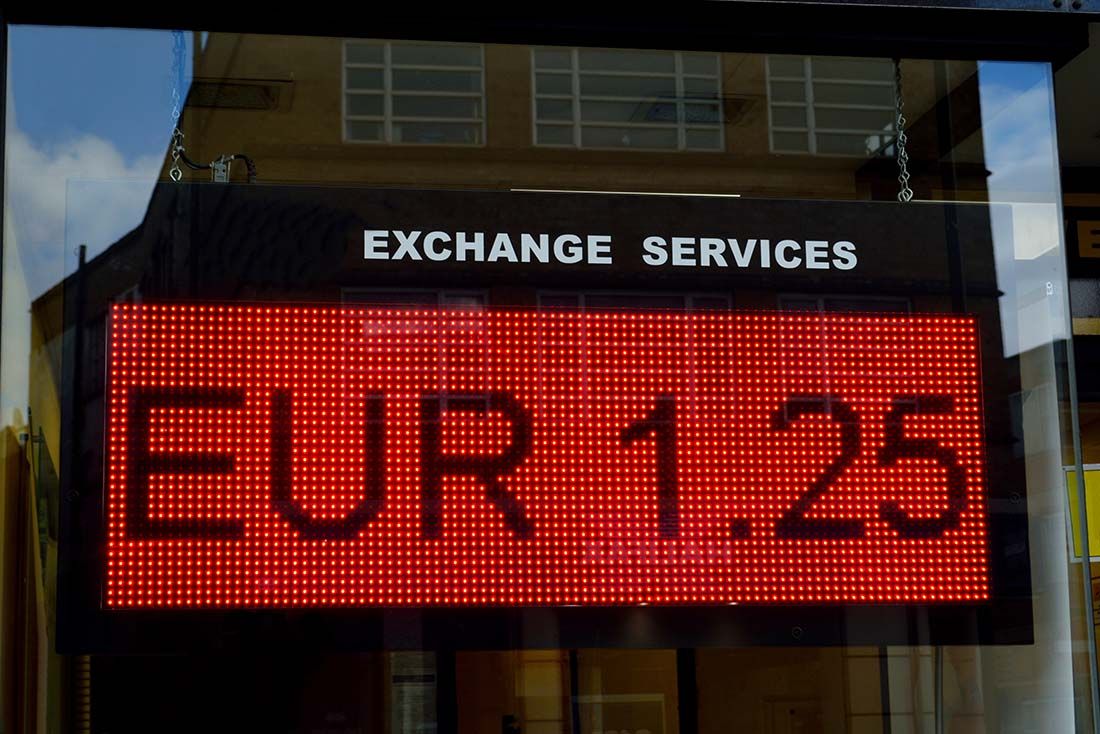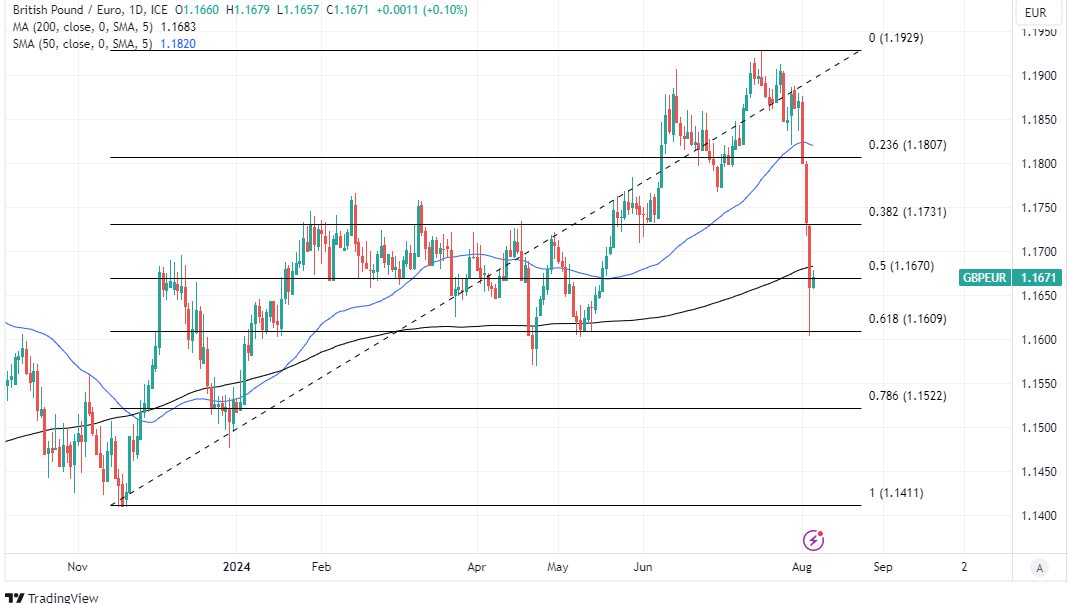
Image © Adobe Images
The Pound to Euro exchange rate has fallen heavily in recent trade but the author’s model suggests it’s now bottoming out in what is likely to be a narrow 1.1650 to 1.1731 range over the coming days.
GBP/EUR has slumped over recent days after a record net long position in the speculative market was disturbed by an interest rate cut from the Bank of England and a meltdown in global equity markets that exacerbated an unwinding of popular carry trades, and a destabilising rally in the Japanese Yen.
The sell-off has left the pound to euro rate submerged below its 200-day moving average at 1.1683, however, the author's model suggests it should now find support around 1.1650 and that corrective rallies could see it trade briefly above the 1.1731 level in the days ahead.
“Should equity markets calm down in the coming days, and the positioning unwind looks to have been largely fulfilled, we feel the large part of the GBPEUR move lower has already been seen,” said Joe Tuckey, head of FX analysis at Argentex. “Long-term fundamentals remain more constructive than those of the eurozone.”

Above: Pound to Euro rate shown at daily intervals with Fibonacci retracements of November uptrend and selected moving averages indicating prospective areas of support.
The Pound has unraveled much of its year to date rally against the euro in tandem with a decline in expectations for Bank Rate, which have fallen despite Governor Andrew Bailey and chief economist Huw Pill both saying last week that further rate cuts are likely to be some months away.
The July inflation data out next Wednesday will only go so far in determining the timing of the next cut also, because the BoE expects inflation to rise again, to 2.75% by year-end, and says that it won’t respond to any singular month of data surprises. That likely rules out a September cut in most circumstances.
“The UK rate market has since moved to price in more easing encouraged as well by heightened global growth concerns and the sharp global equity market sell-off. The UK rate market has moved to more fully price in 50bps of cuts by November,” MUFG analysts said in a Monday research briefing.
“Another cut as soon as September was judged as unlikely given that the decision to cut last week was such a close call (5-4 vote in favour of a cut and some members who voted for a cut noted their decision was finely balanced), but external developments could pressure the BoE to cut again sooner,” they also said.
